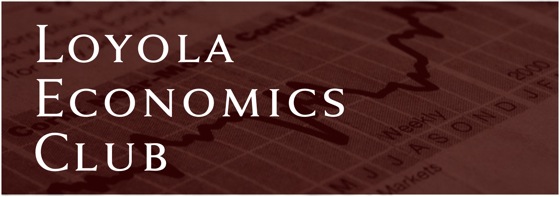
On Thursday the Econ Club had the pleasure of hosting Dr. Christopher Coyne, assistant professor of economics at WVU and author of "After War: The Political Economy of Exporting Democracy."
By using the tools of economics, Coyne analyzed the ability of the US to export democracy abroad. He took into consideration the American intervention in Iraq and Afghanistan and argued that the US failed to establish democracy due to too much reliance on the bureaucratic agencies and the public sector. Coyne concluded that a recovering country needs free trade and movement of people in order to effectively establish liberal and constitutional democracy.
Crucial to Coyne's argument is the distinction between democracy and liberal democracy. As explained in "After War":
Democracy deals with the method of selecting government officials, while liberal democracy deals with the goals of government: the protection of individual rights, the rule of law, and so on. (p. 11)Coyne's argument clearly challenges the current US political economy. Highlighting the role of incentives and free market, he identifies free trade of goods and people as being key elements to successfully encourage the establishment of liberal democracy abroad.
To what extent do you think a country can intervene beyond its borders in order to establish democracy? Do you think a developed country has the sufficient knowledge to impose political and economic systems abroad? Or do you think that non-intervention and free market could lead to global peace?


A country can only intervene beyond it's borders by maintaining and welcoming free trade.
ReplyDeleteMoving beyond that simple action would imply that one country knows what is best for another country, and I think it is safe to say that no country knows that much. This can be based just solely on the fact that all countries are different--geographically, resource wise, culturally, etc.
Coyne made an ironic quip about the U.S. trying to centrally plan a free market economy in Afghanistan that I think was perfect. Free markets must be organic. The most a country can do to promote the free market across the world is trade freely with others.
Suum cuique pulchrum est.
The government can’t substitute the decision, judgment, and knowledge of millions of people interacting through decentralized markets with bureaucratic decisions!! It's simply nonsense... but this is exactly Capitol Hill's favorite approach.
ReplyDelete